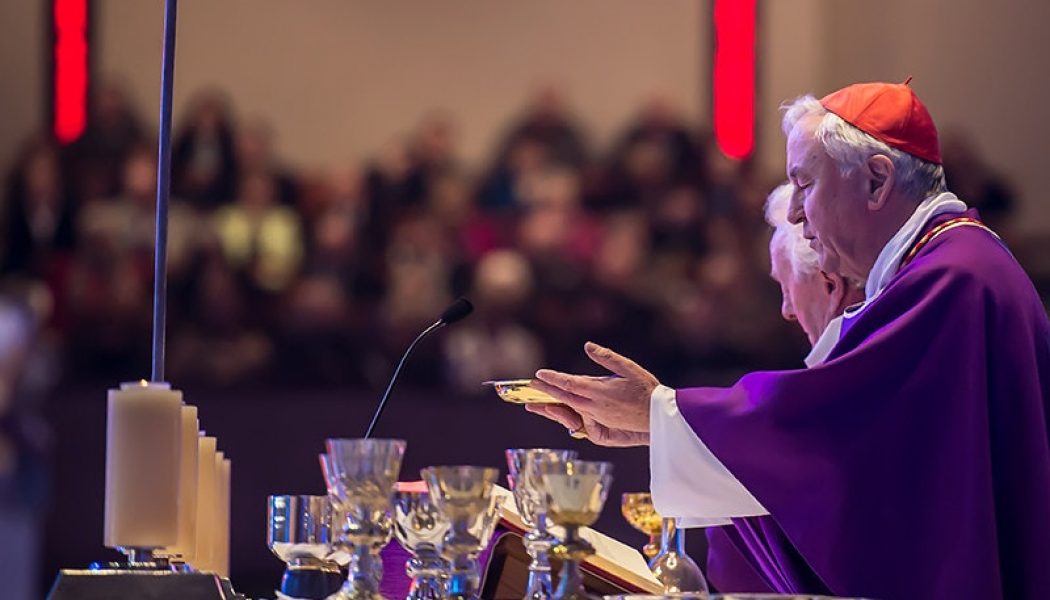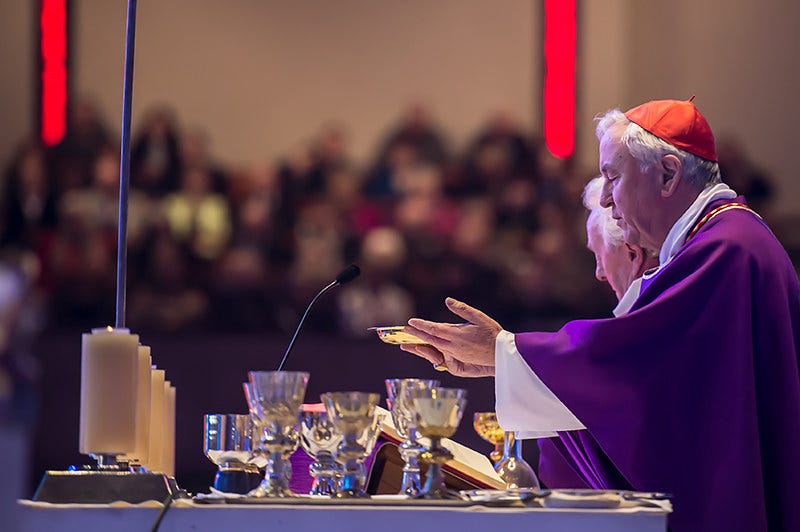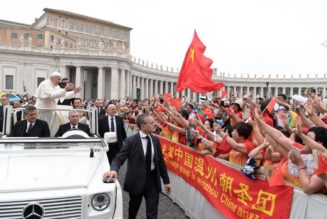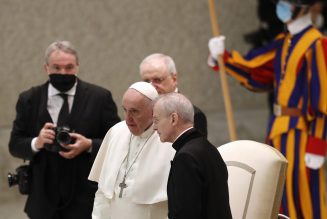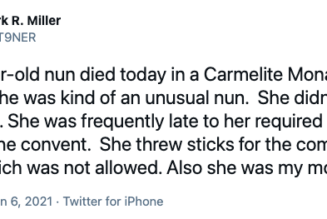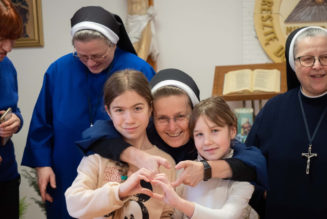British bishops this week mourned the death of a Polish Catholic man, who died Tuesday after a U.K. hospital withdrew the nutrition and hydration he had been receiving since he fell into a coma two months ago.
Before he died, the bishops’ conference of England and Wales had advocated that the man, whose name has not been published, had the right to be given food and water, even while doctors and hospital officials said he should not receive any life support because he was unlikely to regain consciousness.
Their advocacy marks a shift for British bishops, one that might portend increased activism on their part against a growing number of contentious euthanasia cases in Great Britain.
The surprising reason for that shift? It may well be the coronavirus pandemic.
The case of the Polish man is tragic. Known in the media as R.S., the man, who had been living and working in the United Kingdom, suffered a heart attack in early November, and slipped into a coma. Weeks later, hospital officials asked a court permission to withdraw the feeding tubes that provided him food and water. A judge ruled that they could. Appeals were made as far as the European Court of Human Rights, but the judge’s ruling stood.
On Jan. 19, the president of the Polish bishops’ conference, Archbishop Stanisław Gądecki, wrote to the president of the bishops’ conference for England and Wales, Cardinal Vincent Nichols, asking that it intervene with the British government to save the man’s life.
Even though one English bishop had made statements of support for R.S. already, many observers expected that Gądecki’s request to the entire bishops’ conference would be fruitless.
They had reason to expect that.
In previous high-profile cases involving the British National Health System and life support removal, the English and Welsh bishops’ conference had offered only tepid interventions.
In 2017, in the case of a brain damaged infant named Charlie Gard, who was ordered to be taken off life support against his parents’ wishes, the bishops’ conference made a statement claiming that “both sides are seeking to act with integrity and for Charlie’s good as they see it,” and seeming to suggest that no more should be done for the child.
In 2018, when an infant named Alfie Evans was to be taken off a ventilator, the bishops’ conference praised the “professionalism and care for severely ill children shown” by Evans’ medical team. “We know that recently reported public criticism of their work is unfounded as our chaplaincy care for the staff, and indeed offered to the family, has been consistently provided.”
The bishops did not support an offer from a Vatican affiliated hospital to treat Evans. Nichols himself said that many of the child’s supporters were using his situation for political purposes.
In both cases, the bishops faced serious criticism from Catholic bioethicists, most especially because they were said to have failed to defend the rights of parents, rather than the state, to make medical decisions for their children. Even in the face of that criticism, Nichols defended the support of the bishops’ conference for British hospitals and courts.
But their response to the situation of R.S. was different. The day after Gądecki’s request, the bishops’ conference wrote to the British Health Secretary on behalf of R.S.
“The Catholic Church continues to oppose the definition of assisted nutrition and hydration as medical treatment which has now become the basis of medical and legal decisions to withdraw assisted nutrition and hydration from patients. Providing food and water to very sick patients, even by assisted means, is a basic level of care,” the bishops wrote.
“We note that Mr RS had not refused food and fluids nor had he expressed any view about not wanting food and fluids in these circumstances and that there was no evidence that he viewed assisted nutrition and hydration as medical treatment.”
“We write to express our opposition to this definition of medical treatment and to convey the offer of the Polish authorities to assist in the transfer of Mr RS to Poland for his future care,” the bishops added.
Their intervention was not sufficient to spare R.S.’ life, nor were efforts of the Polish government to repatriate the man to Poland. R.S. died Jan. 26.
After he died, the British bishops’ conference emphasized again in a statement that “providing food and water, even clinically assisted food and water, to very sick patients is a basic form of care.”
The bishops added that “we pray that what happened will not be repeated in the future and hope that all those in need of clinically assisted nutrition and hydration will be treated with proper human dignity.”
While many British Catholics will insist that their bishops’ statements were still not strong enough, some change in tone and insistence is apparent in the RS statements, even if it is a gradual one by some standards.
And if the U.K. bishops are gradually becoming more comfortable challenging the British government on critical issues, the coronavirus pandemic may be the cause.
In March 2020, English and Welsh bishops announced that they would close all Catholic churches in their territory, even though they were exempted from the British pandemic stay-at-home order. Nichols himself said it was “not essential” for people to go to church in order to pray, and that keeping churches open would encourage people to travel.
Eventually, the government decided it would order churches closed, prompted in part by the compliance of Catholic and Anglican bishops on the subject.
In April, the cardinal warned against “self-pity” as Catholics expressed discouragement about closed churches.
But by May, after the government said it would reopen some businesses but not churches, Nichols began to express a different view.
“This week’s announcements by the prime minister that some indoor sales premises can open tomorrow and that most shops can open on June 15, questions directly the reasons why our churches remain closed,” Nichols said May 31.
“We are told that these openings, which are to be carefully managed, are based on the need to encourage key activities to start up again. Why are churches excluded from this decision?”
“The opening of our churches, even if just for individual prayer, helps to nurture this vital contribution to our common good,” the cardinal added.
Due in part to Nichols’ intervention, churches were opened June 15. But in November they were ordered closed again. Nichols fought back directly.
“We have not yet seen any evidence whatsoever that would make the banning of communal worship, with all its human costs, a productive part of combating the virus. We ask the government to produce this evidence that justifies the cessation of acts of public worship.”
“It is… a source of deep anguish now that the Government is requiring, once again, the cessation of public communal worship,” the cardinal added.
The pushback was not immediately effective. But when another lockdown was announced in January, churches were exempted, and public Masses permitted. Nichols’ intervention was given some credit for moving the needle on the subject.
Within the span of one year, the English bishops moved from support for Church closures amid government lockdowns to direct opposition of them. That opposition had measurable impact. And the experience seems to have emboldened them — certainly their approach in the case of R.S. marks a change few saw coming.
The psychology of English Catholics is complex, and 500 years in the making. The experience of 2020 seems to have changed their outlook, as it has for most people. But it is too soon to tell whether that change will be a lasting one
Certainly, the bishops of England will have more opportunities to use their newfound voice, in the face of secularism and a burgeoning “throwaway culture” in their country. Whether they will, on the island where bishops have sometimes kept their souls only when willing to lose their heads, remains to be seen.
Join Our Telegram Group : Salvation & Prosperity
